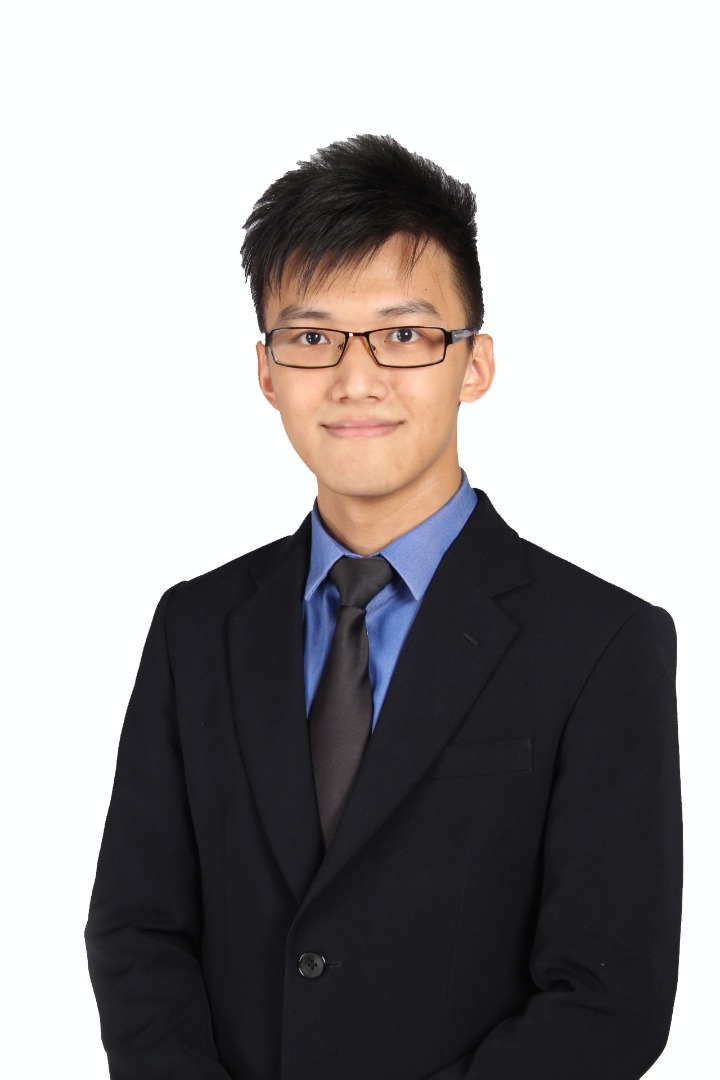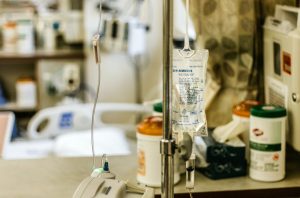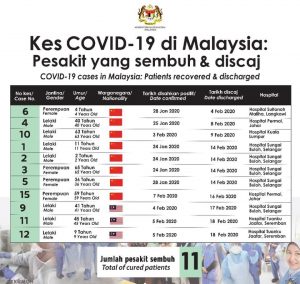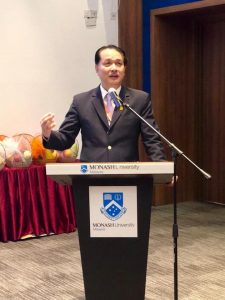Getting to know: First Malaysia-produced PharmD Graduate

We had the honour of meeting the first Malaysian-produced Doctor in Pharmacy (PharmD) graduate. Dr. Chong Chin Pin, or more commonly known as CP by those who know him personally, who is also YPC’s treasurer, recently graduated and received the PharmD title. We sat down and spoke to him in hopes of obtaining a clearer insight on his entire journey.
Hello Chin Pin, great to have you with us. Congratulations on the title. To get the ball rolling, let’s start off with the reason of you embarking on this academic journey. What was the spark to your decision?
Thank you for having me. Towards graduating from my Bachelor of Pharmacy in 2015, I had opportunities to be exposed to pharmacy practices in neighbouring South East Asian countries such as Indonesia, Singapore and Thailand who are moving towards specialized clinical pharmacy degree. I then wished to be part of the force of this transformation. Specialized pharmacists are definitely the future for the clinical pharmacy profession. We readily acknowledge the medical profession in which doctors undergo residency to master a specialization; so why not the same for pharmacy? A specialized pharmacy education program endeavours a different level of empowerment compared to the conventional coursework-based study through the practical experience of clerkship in a specialized pharmacotherapeutics field.
Can you bring us through your journey in obtaining this title? (process in applying / tasks or syllabi in which you had to go through / etc)
To pursue PharmD in Malaysia, one must have obtained a Bachelor of Pharmacy degree or an equivalent degree. The candidate must possess a good standing of CGPA ≥ 2.5, or 5 years of continuous working experience if CGPA ≤ 2.5. The PharmD takes a minimal of 2.5 years to complete. The journey begins with one year of didactic learning on various pharmacotherapeutics topics to strengthen the foundation required for the residency years. With the acquired knowledge, the candidate then continues with one year of clinical residency in various medical disciplines, such as internal medicine, infectious disease, and critical & intensive care. At the end of the one-year residency, the candidate is required to choose an area to pursuit six months of specialized residency and research dissertation.
What was the specialisation taken up by you, and why?
I have chosen infectious disease to be my field of specialization, and later on, I have also developed a deep interest in infectious diseases related to critically ill populations. During my undergraduate days, infectious disease and antibiotics are everyone’s “nightmare”, and it is unbelievable for me to choose this discipline which is completely out of my comfort zone. Unlike the other medical disciplines which are relatively straightforward in terms of drug treatment, the treatments in infectious disease can be quite challenging. The treatment in infectious disease requires practitioners to consider both the host factor (patient) and the causative pathogens. Choosing the right treatment is often more than just picking the agent according to the pathogen susceptibility, but to also consider factors such as pharmacokinetics/pharmacodynamics correlation, the concentration of drug at the specific sites, altered drug elimination, drug-protein binding, etc. Not to mention, we also have to strike a balance between treating the infections, and at the same time ensuring the antimicrobials stewardship practice is in place. Hence, treating infections involve substantial critical thinking for the best plan, and this element drew me to choose infectious disease as my specialization.
What was your biggest struggle and how did you overcome it?
The biggest struggle during my further study is perhaps I had to frequently rotate between hospitals during my residency. Every new rotation requires me to adapt to new environments, a new colleague and new culture, not to mention the daily travels to new places. However, the frequent rotations do come with merit, as I am able to learn and compare the best practice between different hospitals. How do I keep my stress at bay? I stick to my 6F principle: Faith, Friends, Family, Fellowships, Foods, and have FUN in doing everything!! ~
Is there something you would wish to tell those who aspire to travel down the same path as you?
There are a few principles that I upheld during my further study, and I hope it will be helpful to those who choose the same path. Firstly, is to be inquisitive to understand the reason or “why” behind each treatment choice. Guideline recommendations are determined by reasons or evidence. However, we often just receive the facts as it is without understanding the background of recommendations. Understanding the background of those recommendations help us in fine-tuning our decision making, especially related to subject matter that falls into clinical “grey-area”. Secondly, is to prepare ourselves to think differently and have the courage to do things differently. Often times we are confined to the routine practices because “we have been doing this all this while”. It may be time for us to look into the reasons behind it, and if possible, identify any room for us to improve the current practices. Lastly, is be prepared to go beyond the horizon, by learning and sharing something new. Descript by the pyramid of learning, teaching others has the highest learning retention rate. As a student, we are often at the receiving end for new knowledge. Hence to push things beyond the horizon, we should adopt the habit of sharing new knowledge with others. As sharing knowledge creates more opportunities for discussion and co-learning.
Thank you for your time, Chin Pin. We on behalf of the MPS-YPC wish you the very best in your future endeavours.













